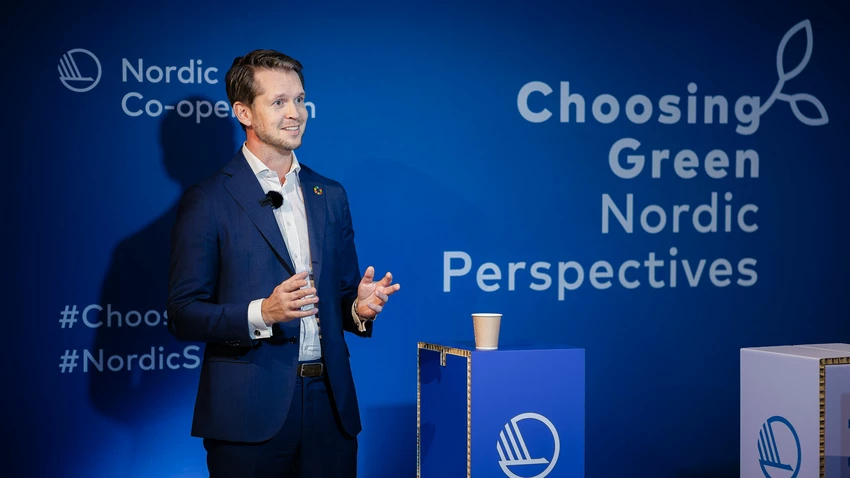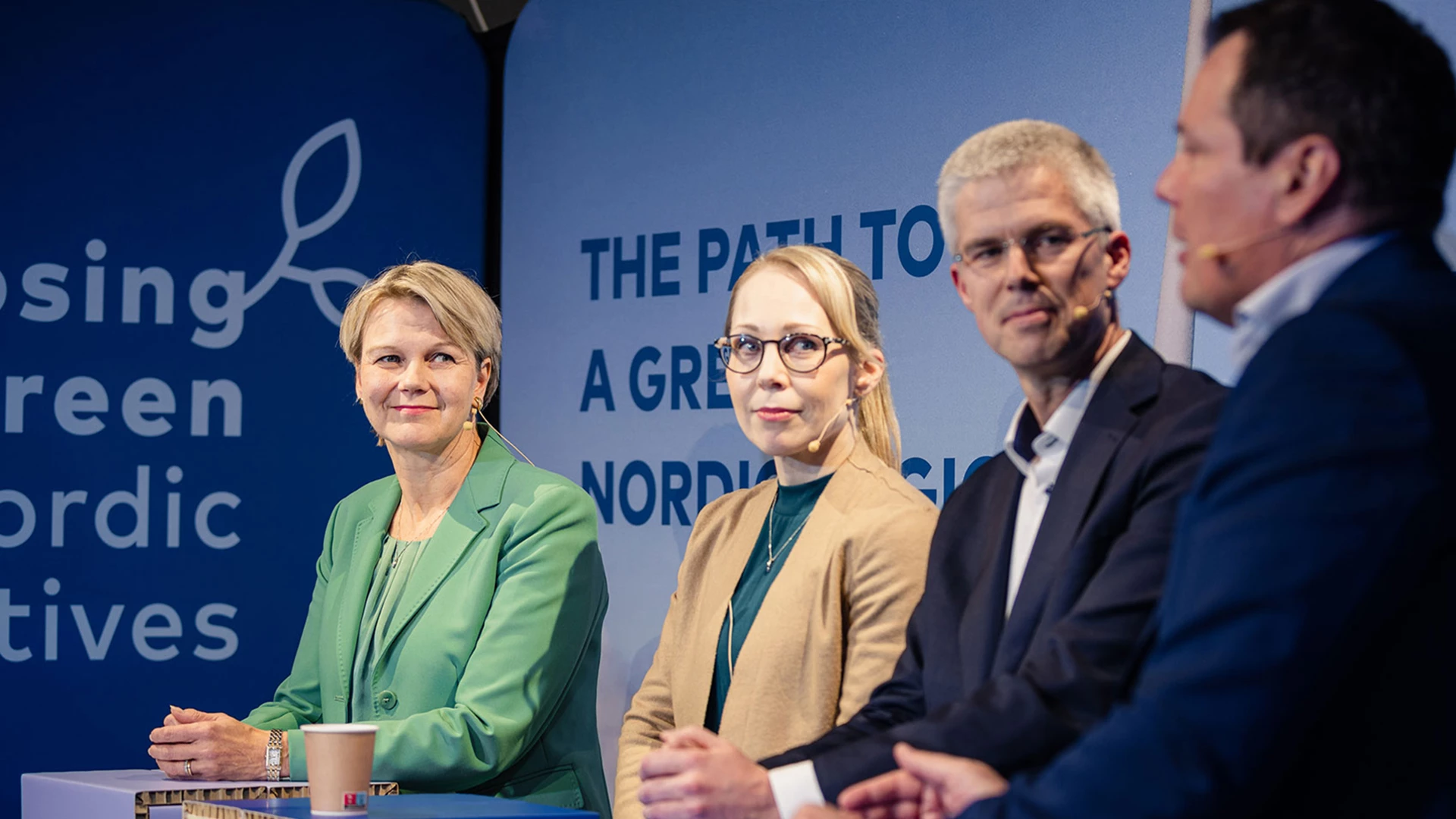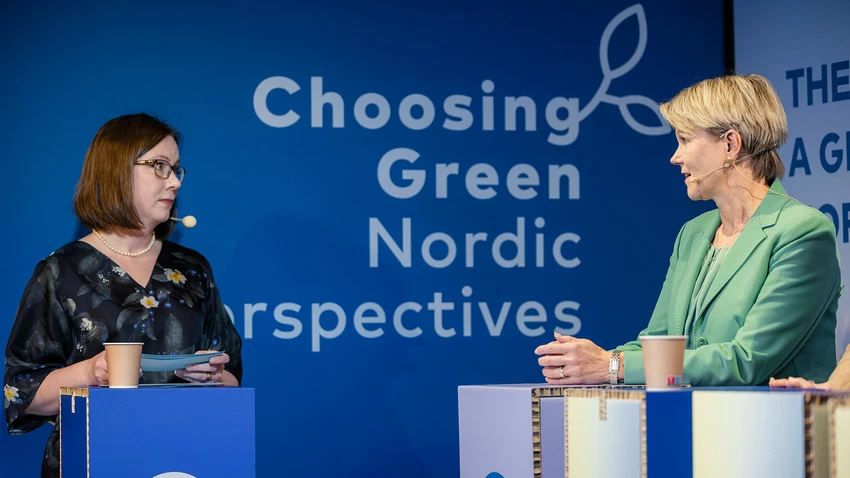
Anders Langworth, Nordea’s Head of Group Sustainability, gave the intro speech, outlining how he has seen the corporate world moving from being a silent observer at the COP22 in Morocco to taking an active and determining role in creating plans and setting goals at this year’s COP in Glasgow.
He then handed over the discussion to the panel consisting of Nina Arkilahti, Nordea’s Head of Business Banking, Hanna Kaskela, Director of Responsible Investment at the insurance company Varma, Arjen Berends, CFO and Executive Vice President at Wärtsilä, a producer of green technology solutions for the marine and energy markets, and Petri Vuorio, Director of Entrepreneurship, Industrial Policy and EU Affairs at the Confederation of Finnish Industries.
Green lending on the rise
Nina Arkilahti explained how green lending has become more and more important for small and medium-sized businesses:




